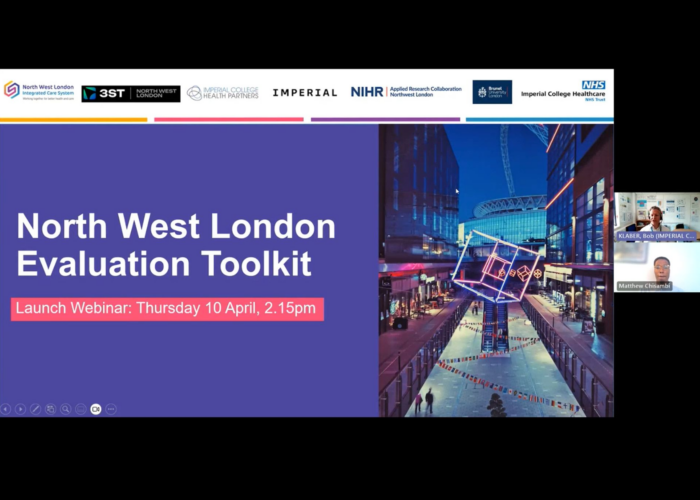NHS England has today (Monday 22 December) announced that Imperial College Healthcare NHS Trust has been designated a Genomic Medical Centre (GMC) in partnership with Royal Brompton & Harefield NHS Foundation Trust, Royal Marsden NHS Foundation Trust and Chelsea and Westminster Hospital NHS Foundation Trust. Imperial College Health Partners will also be supporting the new Centre in its capacity as the Academic Health Science Network for North West London.
These four trusts make up Imperial College Health Partners NHS GMC which will contribute to the successful delivery of the 100,000 Genome Project, a national initiative which aims to sequence the genomes of 100,000 participants, for the first time, to enable new scientific discovery and medical insights, and bring benefit to patients.
The trusts will work together to ask patients with cancer and inherited rare diseases if they would like to participate, gather their samples and relevant medical information to build up a bank of anonymised data in order to better understand the role that genes play in disease and what treatments will work best for each individual patient.
The project has the potential to transform the future of healthcare by improving our knowledge of the influence of genetics on disease, how other people can be helped with similar diseases in the future, and how different types of tests can be developed to detect changes beyond the genome.
In addition to these long-term benefits, some participating patients might benefit in the short-term as a conclusive diagnosis may be reached for a rare and inherited disease more quickly, or a treatment for cancer may be targeted at the particular genetic change that is present in the cancer.
Professor Chris Harrison, medical director at Imperial College Healthcare NHS Trust said: “This is a huge opportunity for our Trust to work in partnership with others on this exciting project. It means that many more patients will get the improved treatment that our developing understanding of genomics brings”
Imperial College Healthcare NHS Trust has a strong record of sequencing patients’ genes to help treat conditions such as lung cancer, breast cancer and pulmonary hypertension.
Imperial College Academic Health Science Centre (AHSC) is a collaboration that brings together researchers, educators and clinicians from Imperial College London and Imperial College Healthcare NHS Trust to drive forward innovation and advancements in patient care. There are many examples where the AHSC has improved treatment for patients based on the findings of genetic research.
For example, in ovarian cancer, women who have a specific gene mutation (in the BRCA gene) will respond better to a particular type of drug therapy, and their cancer is less likely to return. The only way of knowing if a patient has this genetic mutation is by analysing samples taken from their cancer. So our doctors can then select a drug that is known to interact with the biological driver of their cancer.
The BRCA gene is just one example of genetic research that has improved the treatment our patients receive. Genetic research has enabled new and more precise diagnostic tests, and will lead to more effective and targeted treatments to improve outcomes and reduce side effects of cancer therapies. However, BRCA is just one gene of many which are altered in cancer. The ambitious 100,000 Genome Project will look at whole human genomes to identify in a single test changes that may be present in many different genes.
Professor Jonathan Weber, director of Imperial College Academic Health Science Centre (AHSC), said: “The 100,000 Genome project has the potential to transform the future of personalised medicine.
“The creation of Imperial College Health Partners NHS Genomic Centre will allow researchers and clinicians at the Trust and College to be at the forefront of medical innovation by sequencing genomes on an unprecedented scale. This could help us bring better treatments to patients with cancers and rare diseases.
“We aim to translate our findings in as fast a timeframe as possible so that people could benefit from new therapies, personalisation of drugs and more accurate diagnostic testing. The Centre is a clear example of the work of the AHSC which turns discoveries from basic science into improvements in patient care and clinical practice that saves and improves the lives of countless numbers of patients.”
Imperial College Health Partners NHS GMC is one of 11 centres of this kind in the world, all in the UK.



